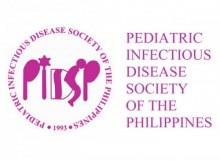Journal 2017 Vol.18 No.2
Association of Factors with Successful Treatment Outcome of Childhood Tuberculosis in Barangay Commonwealth, Quezon City, Philippines: A Two-Year Retrospective Study
Christine N. Pecson , M.D., Ana Liza H. Duran, M.D.
Christine N. Pecson , M.D., Ana Liza H. Duran, M.D.
Abstract
Background: Tuberculosis remains a public health concern worldwide. Reports on the association of factors of childhood tuberculosis with treatment outcome are limited.
Objectives: To determine the epidemiology and association of factors of childhood tuberculosis with successful treatment outcome in some of the barangays of Quezon City.
Methodology: This is a retrospective cohort study done at Barangay Commonwealth Health Centers including children 0-14 years old with tuberculosis registered and treated from January 1, 2013 to July 15, 2015. Socio-demographic and clinical data were obtained. Patient profile data, treatment cards and medical records were the data sources
Results: A total of 267 new cases of childhood TB were analyzed. The treatment success rate was 98% (97% completed treatment, 1% cured). The rate of poor treatment outcome including default cases was 2%. There were no reported deaths or treatment failure. On univariate analysis, patients with weight gain (p=0.001) had an odds ratio of 8.085 (95% CI:1.310-49.900) to have a successful treatment outcome. On multivariate analysis, weight gain was significantly associated with treatment success (p=0.042; OR=12.5, 95% CI: 1.091, 143.244). None of the socio-economic and clinical factors studied was associated with successful treatment outcome.
Conclusion: Weight gain is a factor of a successful treatment in childhood tuberculosis. Children who gained weight after treatment are more likely to have a successful treatment outcome.
